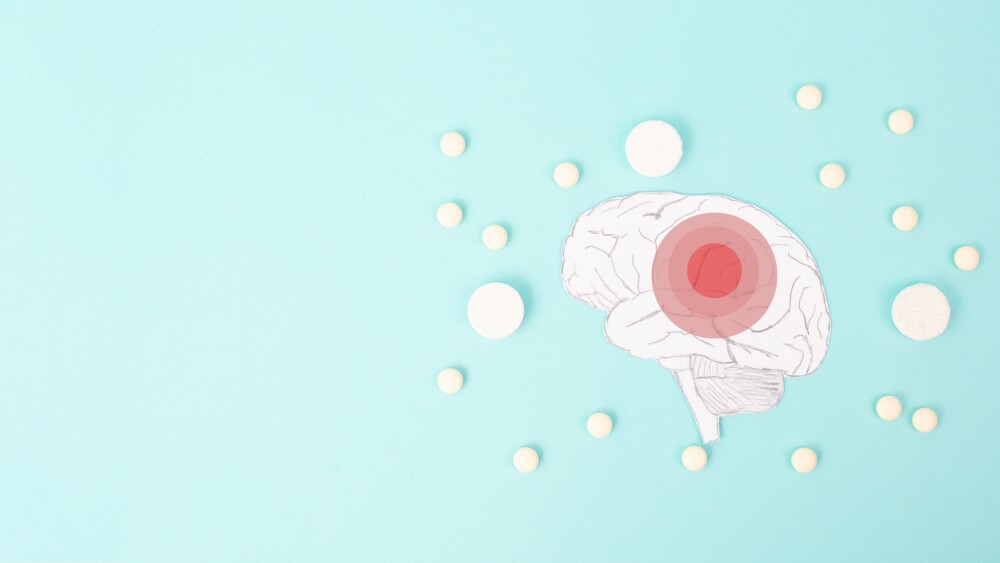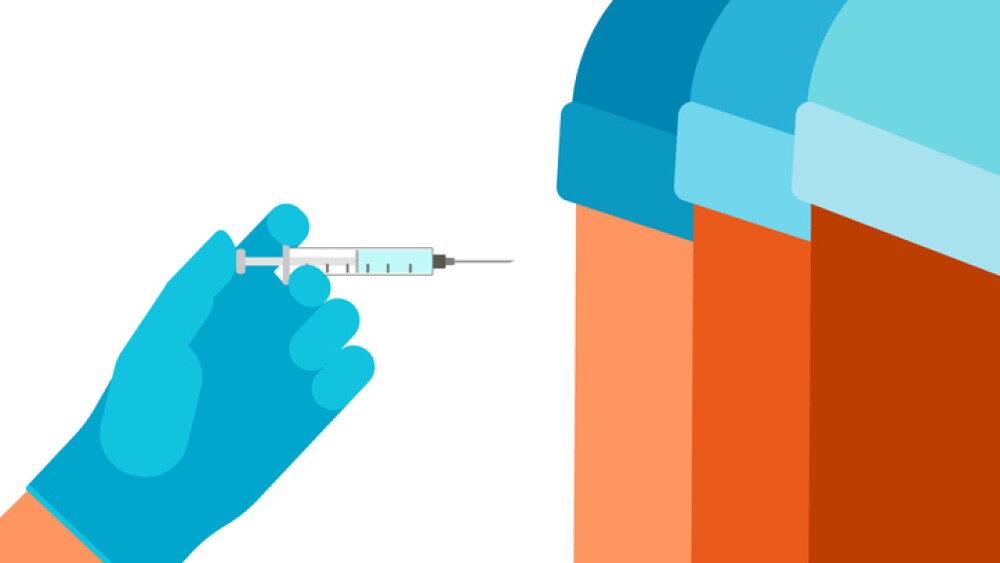SAN FRANCISCO, Nov. 11 /PRNewswire/ -- Roche announced today plans to present interim results from a study showing that re-treatment with Pegasys(R) (peginterferon alpha-2a) plus Copegus(R) (ribavirin, USP) reduced viral levels in hepatitis C patients for whom treatment with Peg-Intron(R) (peginterferon alpha-2b) plus Rebetol(R) (ribavirin, USP) had failed. Interim study results from the REPEAT (REtreatment with PEgasys in pATients Not Responding to Peg-Intron Therapy) study will be presented here on Nov. 14, 2005, at the 56th annual meeting of the American Association for the Study of Liver Diseases (AASLD), which begins today.
The National Institutes of Health Consensus Development Conference Statement on the Management of Hepatitis C Investigators noted that failure to respond to optimal therapy with the combination of pegylated interferon and ribavirin presents a significant problem to hepatitis C patients. REPEAT was designed to help find a solution for this growing problem: to provide patients who had previously failed treatment with another treatment option.
Interim results from the REPEAT study look at early markers of the efficacy and safety of different regimens of Pegasys and Copegus combination therapy in 950 patients with hepatitis C in whom previous treatment with Peg-Intron and Rebetol failed to generate a sustained virologic response (SVR). Patients received either a standard (180 mcg/wk) or high fixed-dose induction (360 mcg/wk) of Pegasys with Copegus for the first 12 weeks. After the initial 12-week treatment period, all patients are being treated with the standard dose of Pegasys and Copegus.
Forty-five percent of patients treated with the standard dose of Pegasys with Copegus had an early viral response (EVR), defined as having a greater than or equal to 2 log drop in viral load or having no detectable virus (n = 469). An EVR rate of 62 percent was achieved in the group of patients who were treated with the induction dose of Pegasys with Copegus for the first 12 weeks of therapy (n = 473).
"The interim results from this study suggest that previous non-responders to treatment can still be re-treated with some success, particularly in those treated with the higher dose of Pegasys with ribavirin," said Donald Jensen, MD, professor of medicine and director of the Center for Liver Diseases at the University of Chicago. "In addition, the interim data show that the high dose of Pegasys is generally well tolerated by patients."
Additional key findings from the 12-week REPEAT results presented at AASLD:
* Fifty percent of the patients in this trial with advanced fibrosis or cirrhosis who received the induction dose of Pegasys plus Copegus achieved an early viral response (n = 119). * There was no difference in adverse events for patients taking the high fixed-dose induction of Pegasys with Copegus for 12 weeks compared to those taking the standard dose. Fatigue, headache and nausea were the most common individual adverse events reported, occurring in a similar proportion of patients in both groups analyzed. Serious adverse events were uncommon, occurring in 2 percent of patients in the high-dose induction group and 4 percent of those treated with standard-dose peginterferon alpha-2a. * During the first 12 weeks of the study, a slightly higher proportion of patients receiving high-dose compared with standard-dose peginterferon alpha-2a discontinued treatment prematurely. Overall, a similar proportion of patients in the high-dose induction group and the standard-dose groups discontinued because of adverse events.
"Preliminary results from this study may be promising for the many patients who had believed that treatment would not work for them," said James A. Thommes, M.D. Roche Sr. Medical Director. "Not only are all patients in REPEAT non-responders to Peg-Intron plus Rebetol, many also have other baseline characteristics of difficult to treat virus. We believe this data may show potential for patients to safely and effectively have significant early viral responses when treated with the investigational dosing strategies of Pegasys plus Copegus therapy. We are looking forward to final results in the future."
As the REPEAT trial continues, Pegasys and Copegus will be given for either a total of 48-weeks or for a longer 72-week period.
"Many patients undergo treatment for hepatitis C only to find out that they did not respond," said Jules Levin, Executive Director of National AIDS Treatment Advocacy Project (NATAP). "Treatment options like those being evaluated in the REPEAT study lend hope to patients who might previously have thought their disease was not treatable."
About Hepatitis C
Hepatitis C, a blood-borne infectious disease of the liver, is transmitted through body fluids, primarily blood or blood products, and by sharing needles. Hepatitis C chronically infects an estimated 2.7 million Americans and 170 million people worldwide and is the leading cause of cirrhosis and liver cancer and the number one reason for liver transplants in the U.S.
About Pegasys
Pegasys, a pegylated alpha interferon, and Copegus were approved by the FDA in December 2002 for use in combination for the treatment of adults with chronic hepatitis C who have compensated liver disease and have not previously been treated with interferon alpha.
Patients in whom efficacy was demonstrated included patients with compensated liver disease and histological evidence of cirrhosis.
Pegasys is dosed at 180mcg as a subcutaneous injection taken once a week. Copegus is available as a 200mg tablet, and is administered orally two times a day as a split dose. Roche has backed Pegasys with the most extensive clinical research program ever undertaken in hepatitis C, with major studies initiated to advance treatment for hepatitis C patients with unmet needs, including patients co-infected with HIV and HCV, African Americans, patients with cirrhosis, and patients who have failed to respond to previous therapy.
Please see attached additional information about Pegasys indication and safety.
About Roche - More Than a Century in the U.S. and the World
Founded in 1896 and headquartered in Basel, Switzerland, Roche is one of the world's leading innovation-driven healthcare groups. Its core businesses are pharmaceuticals and diagnostics. Roche is one of the world's leaders in diagnostics, the leading supplier of pharmaceuticals for cancer, as well as a leader in virology and transplantation. As a supplier of products and services for the prevention, diagnosis and treatment of disease, the Group contributes on many fronts to improve people's health and quality of life. Roche employs roughly 65,000 people in 150 countries, including approximately 15,000 in the United States.
Roche's U.S. operations celebrate their American Centennial in 2005. In another milestone this year, Roche was named in January to Fortune magazine's list of Best Companies to Work for in America. One of an increasingly rare breed of major healthcare companies that still bear their original name, Roche today has more than a dozen U.S. sites located in California, Colorado, Indiana, New Jersey and South Carolina, as well as in Puerto Rico. Roche has alliances and research and development agreements with numerous partners, including majority ownership interests in Genentech and Chugai. Roche's Pharmaceuticals Division offers a portfolio of leading medicines in therapeutic areas including cancer, HIV/AIDS, hepatitis C, transplantation, dermatology and influenza. Roche's Diagnostics Division supplies a wide array of innovative testing products and services to researchers, physicians, patients, hospitals and laboratories world-wide. For further information, please visit our worldwide and U.S. websites (Global: http://www.roche.com and U.S.: http://www.roche.us).
IMPORTANT SAFETY INFORMATION
PEGASYS, alone or in combination with COPEGUS, is indicated for the treatment of adults with chronic hepatitis C virus infection who have compensated liver disease and have not been previously treated with interferon alpha. Patients in whom efficacy was demonstrated included patients with compensated liver disease and histological evidence of cirrhosis (Child-Pugh class A) and patients with HIV disease that is clinically stable (eg, antiretroviral therapy not required or receiving stable antiretroviral therapy).
Alpha interferons, including PEGASYS(R) (Peginterferon alfa-2a), may cause or aggravate fatal or life-threatening neuropsychiatric, autoimmune, ischemic, and infectious disorders. Patients should be monitored closely with periodic clinical and laboratory evaluations. Therapy should be withdrawn in patients with persistently severe or worsening signs or symptoms of these conditions. In many, but not all cases, these disorders resolve after stopping PEGASYS therapy (see CONTRAINDICATIONS, WARNINGS, PRECAUTIONS and ADVERSE REACTIONS in complete product information).
Use with Ribavirin. Ribavirin, including COPEGUS(R), may cause birth defects and/or death of the fetus. Extreme care must be taken to avoid pregnancy in female patients and in female partners of male patients. Ribavirin causes hemolytic anemia. The anemia associated with ribavirin therapy may result in a worsening of cardiac disease. Ribavirin is genotoxic and mutagenic and should be considered a potential carcinogen (see CONTRAINDICATIONS, WARNINGS, PRECAUTIONS and ADVERSE REACTIONS in complete product information).
PEGASYS is contraindicated in patients with hypersensitivity to PEGASYS or any of its components, autoimmune hepatitis, and hepatic decompensation (Child-Pugh score greater than 6; class B and C) in cirrhotic CHC monoinfected patients before or during treatment. Pegasys is also contraindicated in hepatic decompensation with Child-Pugh score greater than or equal to 6 in cirrhotic CHC patients coinfected with HIV before or during treatment. PEGASYS is also contraindicated in neonates and infants because it contains benzyl alcohol. Benzyl alcohol is associated with an increased incidence of neurological and other complications in neonates and infants, which are
sometimes fatal. PEGASYS and COPEGUS therapy is additionally contraindicated in patients with a hypersensitivity to COPEGUS or any of its components, in women who are pregnant, men whose female partners are pregnant, and patients with hemoglobinopathies (eg, thalassemia major, sickle-cell anemia).
COPEGUS THERAPY SHOULD NOT BE STARTED UNLESS A REPORT OF A NEGATIVE PREGNANCY TEST HAS BEEN OBTAINED IMMEDIATELY PRIOR TO INITIATION OF THERAPY. Women of childbearing potential and men must use two forms of effective contraception during treatment and during the 6 months after treatment has concluded. Routine monthly pregnancy tests must be performed during this time. If pregnancy should occur during treatment or during 6 months post-therapy, the patient must be advised of the significant teratogenic risk of COPEGUS therapy to the fetus. Healthcare providers and patients are strongly encouraged to immediately report any pregnancy in a patient or partner of a patient during treatment or during 6 months after treatment cessation to the Ribavirin Pregnancy Registry at 1-800-593-2214.
Chronic hepatitis C (CHC) patients with cirrhosis may be at risk of hepatic decompensation and death when treated with alpha interferons, including PEGASYS. Cirrhotic CHC patients coinfected with HIV receiving highly active antiretroviral therapy (HAART) and interferon alfa-2a with or without ribavirin appear to be at increased risk for the development of hepatic decompensation compared to patients not receiving HAART. During treatment, patients' clinical status and hepatic function should be closely monitored, and PEGASYS treatment should be immediately discontinued if decompensation (Child-Pugh score greater than or equal to 6) is observed.
The most common adverse events reported for PEGASYS and COPEGUS combination therapy observed in clinical trials were fatigue/asthenia (65%), headache (43%), pyrexia (41%), myalgia (40%), irritability/anxiety/nervousness (33%), insomnia (30%), alopecia (28%), neutropenia (27%), nausea/vomiting (25%), rigors (25%), anorexia (24%), injection-site reaction (23%), arthralgia (22%), depression (20%), pruritus (19%) and dermatitis (16%). The adverse event profile of coinfected patients treated with PEGASYS and COPEGUS was generally similar to that shown for monoinfected patients. Events occurring more frequently in coinfected patients were neutropenia (40%), anemia (14%), thrombocytopenia (8%), weight decrease (16%) and mood alteration (9%).
Serious adverse events included neuropsychiatric disorders (homicidal ideation, suicidal ideation, suicide attempt and suicide), serious and severe bacterial infections (sepsis), bone marrow toxicity (cytopenia and rarely, aplastic anemia), cardiovascular disorders (hypertension, supraventricular arrhythmias and myocardial infarction), hypersensitivity (including anaphylaxis), endocrine disorders (including thyroid disorders and diabetes mellitus), autoimmune disorders (including idiopathic thrombocytopenic purpura, thrombotic thrombocytopenic purpura, psoriasis, lupus, rheumatoid arthritis and interstitial nephritis), pulmonary disorders (dyspnea, pneumonia, bronchiolitis obliterans, interstitial pneumonitis and sarcoidosis), colitis (ulcerative and hemorrhagic/ischemic colitis), pancreatitis and ophthalmologic disorders (decrease or loss of vision, retinopathy including macular edema and retinal thrombosis/hemorrhages, optic neuritis and papilledema).
RocheCONTACT: Bob Madison of Roche, mobile: +1-973-919-7085, office:+1-973-562-2231; or David Freundel of MS&L, mobile: +1-917-806-6625, forRoche




